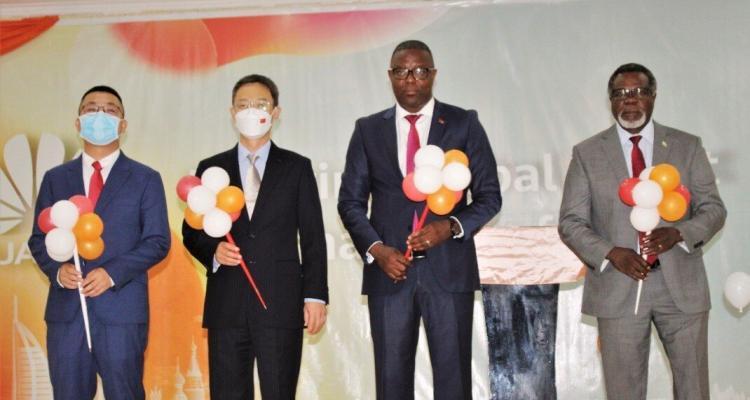
Chinese Ambassador to Malawi, Long Zhou, says China will keep encouraging more Chinese enterprises operating in Malawi to actively fulfill their social responsibilities in the country and bring more tangible benefits to the people of Malawi.
The ambassador made the remarks yesterday in Lilongwe when Huawei launched the Seeds for the Future 2022 edition in which the company is training 100 students from universities in the country in Information and Communications Technology (ICT).
Long said that in the 15 years since the establishment of diplomatic ties between China and Malawi, the vast majority of Chinese-funded enterprises have actively implemented the Chinese government’s projects in various sectors such as agriculture, health, education and sports.
“China will continue to adhere to mutual benefit and win-win results, strengthen practical cooperation with Malawi in various fields under the framework of the China-Africa Cooperation Forum and other frameworks, We will make new efforts and contributions to deepen bilateral relations and friendship between the two peoples and to build a community of shared destiny between China and Malawi,” the ambassador said.
Long further said that he believes that Huawei can use its expertise accumulated over the years in the field of ICT and continue to make its contribution to improve the digital competitiveness of Malawi and her people.
He added that the Seeds for the Future will provide high-quality training for trainees to learn about the latest trends in the global information and communications industry and obtain career guidance.
In his remarks, Minister of Information and Digitalization Gospel Kazako commended Huawei for being a true friend in the journey of building the digital capabilities of Malawi.
He added that the Seeds for the Future Programme complements the thinking at the Ministry of Information and Digitalization of inculcating the culture of embracing digital usage and adoption at all levels in Malawi.
“My Ministry is currently having dialogue with the Ministry of Education to revise our curriculum to ensure that Digital studies are introduced even at primary and secondary schools. Investment in the foundation of our ICT skills is what will enable us to compete effectively with the rest of the world,’ the minister said.
He then proposed that students from private universities and technical colleges should be included in the program.
Huawei Managing Director, Gu Mu, said Huawei aims to develop skilled, local ICT talent and bridge communication gaps between countries and cultures.
Under the program, Huawei has trained over 500 young people from various universities in Malawi in topics such as the 5G network, cloud computing, artificial intelligence (AI), database storage and how best these can be utilized to benefit Malawi.
Some of the youths also had opportunities under this program to travel to China for learning and knowledge sharing visits.
In Malawi, Huawei implemented the National Fiber Backbone Project Phase1 which is provided by the Chinese Government and it is now implementing the National Fiber Backbone Project Phase 2 which is expected to be delivered early next year.
The project will provide strong technical support for the development of Malawi information industry and digital economy, and help Malawi build a secure and stable backbone transmission network covering the whole country.
Follow us on Twitter:














